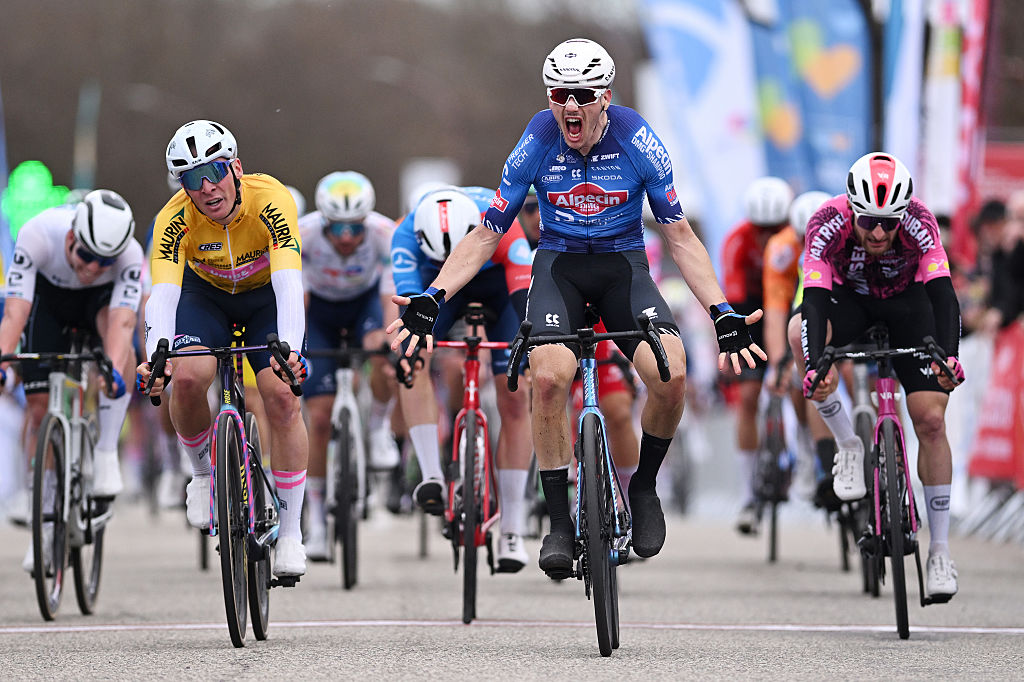5 conclusions from the Tour du Var
The main talking points from the three-day race
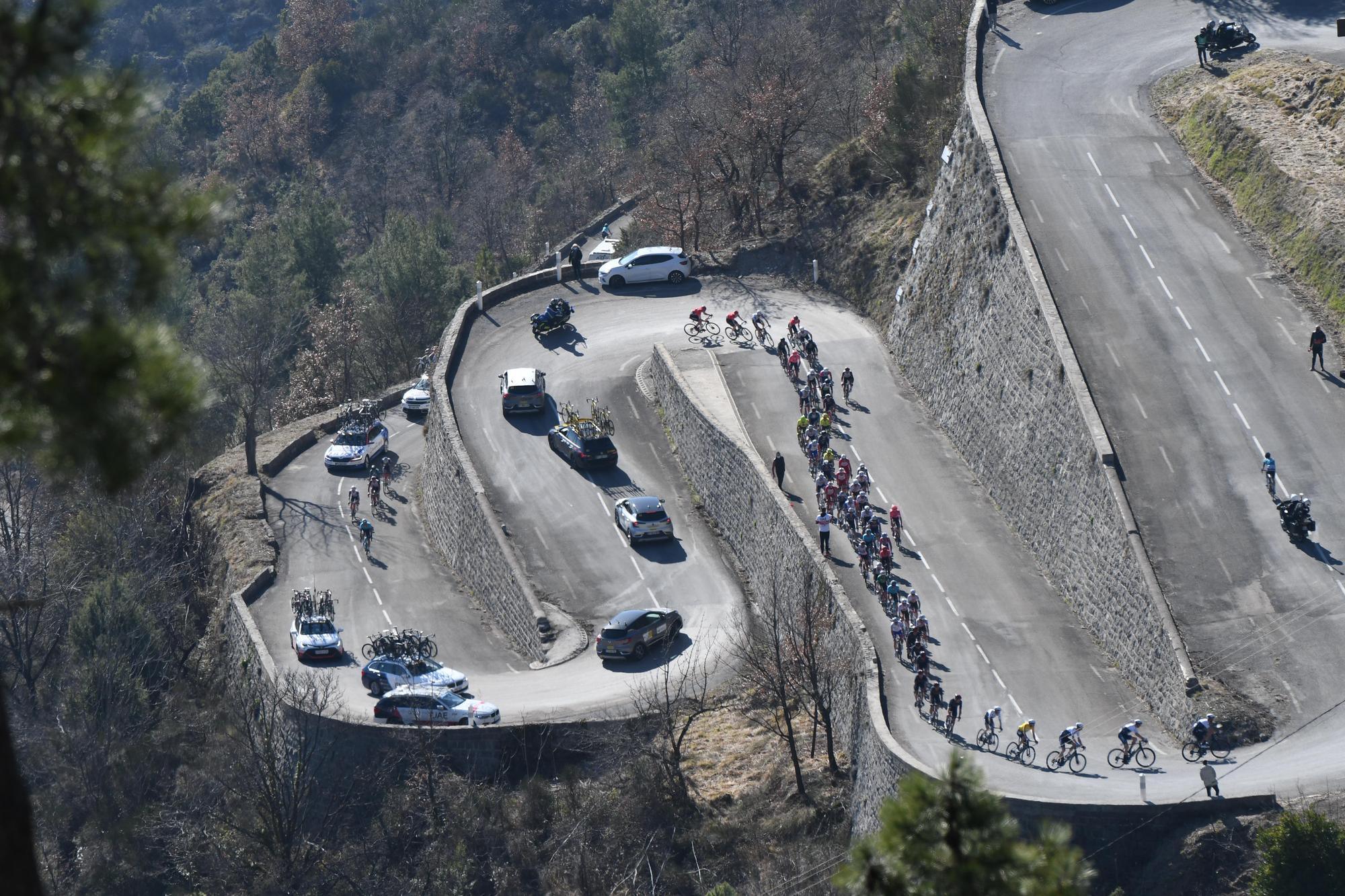
The latest race content, interviews, features, reviews and expert buying guides, direct to your inbox!
You are now subscribed
Your newsletter sign-up was successful
With so many early-season race cancellations, the Tour des Alpes Maritimes et du Var – formerly the Tour du Haut Var – attracted a stellar field for its 53rd edition and produced three days of gripping racing.
After Bauke Mollema (Trek-Segafredo) won the opening stage, Michael Woods (Israel Start-Up Nation) grabbed the yellow jersey on the steep uphill finish on stage 2. However, in a dramatic finale, he lost the race by a handful of seconds as Groupama-FDJ drove a long-range break and Mollema's teammate Gianluca Brambilla rode away to take stage honours and the overall title.
Despite being confined to just three days, the race produced no shortage of storylines, and we've picked out the key talking points.
Trek-Segafredo are in rude health
Winners of the overall title and two stages in this three-day race, Trek-Segafredo didn’t put a foot wrong all weekend.
Their tactics on the final stage were simple, but effective. They went into it with stage 1 winner Bauke Mollema lying second overall, just a second behind Israel Start-Up Nation's race leader Michael Woods. While the Dutchman stuck to the Canadian's wheel, teammate Gianluca Brambilla joined the strong breakaway that was powered along for the most part by three Groupama-FDJ riders, who were targeting the stage/GC double.
When Groupama’s Valentin Madouas attacked on the Col de la Madone, Brambilla was the only rider able to follow. Resident for the last four years on the Côte d’Azur, the punchy Trek rider then drew on his local knowledge by attacking his rival on a short ramp a dozen kilometres from the finish, soloing away to win the stage, his winning margin big enough for him to leap from 17th overall to the top of the podium, with Mollema finishing on the third step.
All in all, this was a great boost for the American team before the Classics and Paris-Nice.
The latest race content, interviews, features, reviews and expert buying guides, direct to your inbox!
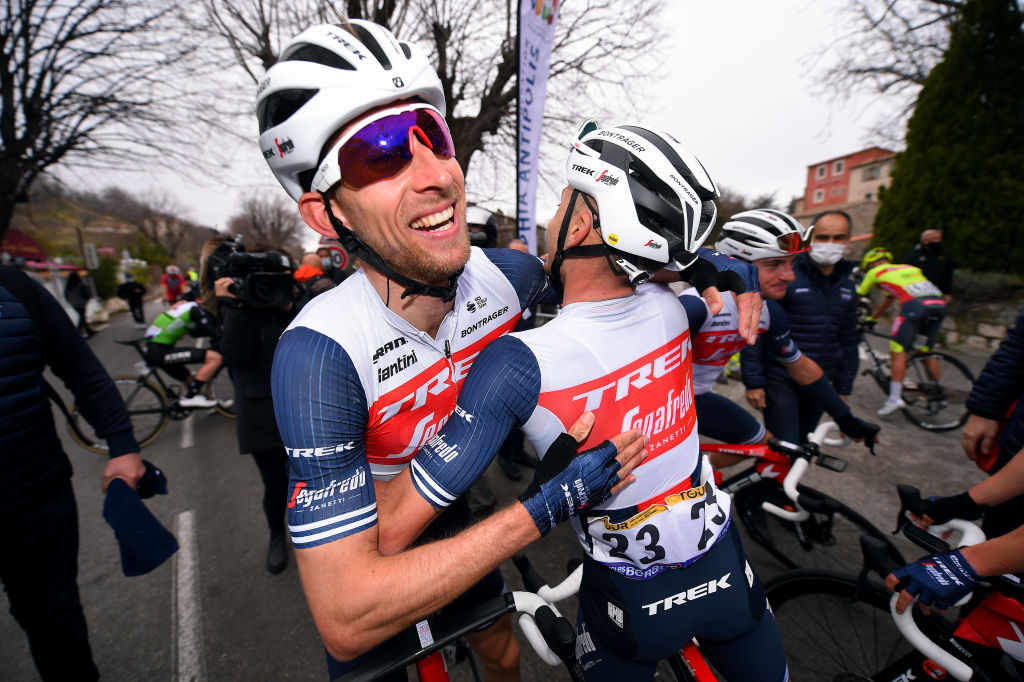
Groupama-FDJ are in good shape too
There were long periods during the final stage when it looked likely that Groupama-FDJ would be the team to usurp Michael Woods. In the end, though, they finished with three riders in the top seven, but none of them on the podium, and with team leader David Gaudu unhappy with the tactics they’d employed.
"If we were just going to end up in fourth, fifth or sixth place overall, it wasn’t worth riding all day like that. It’s the kind of thing that annoys me," Gaudu said to teammate Valentin Madouas just after the pair had crossed the stage three finish line.
Yet there was still much to commend, particularly in Bruno Armirail’s latest barnstorming performance on the front of the break, which gave both Madouas and Rudy Molard a decent shot at overall success. Gaudu later admitted that his form is exactly where it needs to be as he turns his attention to Paris-Nice, his first big objective of the season, where he will be joined as co-leader by sprinter Arnaud Démare.
With the two pair due to share leadership duties at the Tour de France later in the year, this will be a combination to watch.
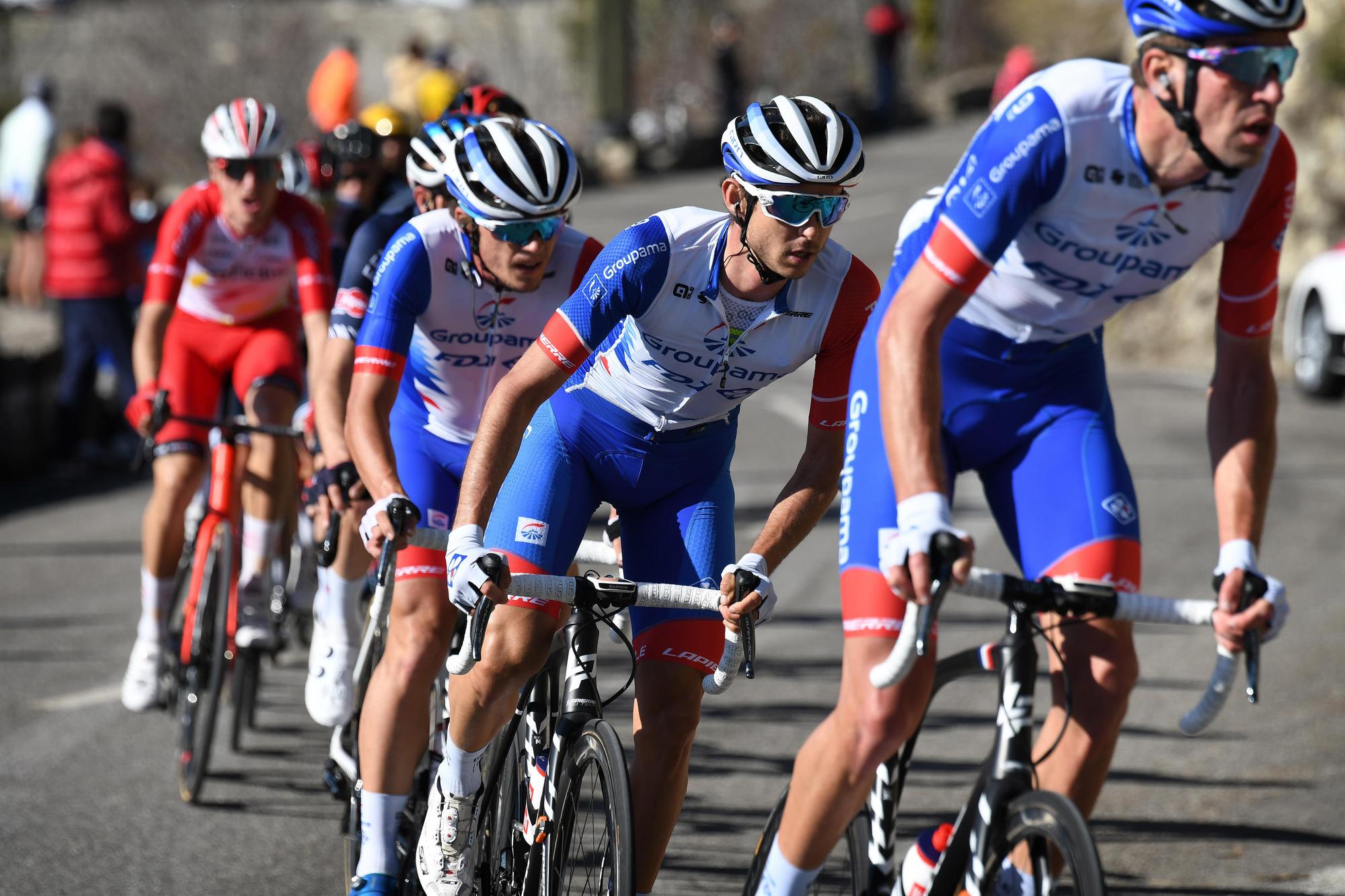
Israel Start-Up Nation already look a different proposition
Michael Woods rode the final two days with a target on his back. On the first of them, he was the favourite to win on the steep wall up through the beautiful Provençal village of Fayence and showed that he was well worthy of that status, powering away from his rivals to claim his first success in Israel Start-Up Nation colours and their first of the season.
Defending the slenderest of margins on the GC on the final day, Woods and his team were then tasked with controlling the race on the toughest stage. While they came up just short, and Woods ended up slipping to second overall behind Brambilla, there were still plenty of positives to take from their performance.
The three days showed that this is a very different Israel team to last year’s. The Woods-Dan Martin tandem already looks likely to deliver significant success. What’s just as important is that the support cast looks well capable of putting them in contention to do so. Krists Neilands was arguably the pick of their domestiques, the Latvian standing out on the final day.

Pinot: Two steps forward, one back
There were tentative signs over the first two days of this race that Thibaut Pinot might be getting over the persistent back issues that have dogged the Frenchman since his crash on the opening day of the Tour de France last September.
Ninth on the uphill finish at Gourdon on stage 1, in the group that came in just behind winner Bauke Mollema, Pinot said the next morning that he’d felt no pain, even when the racing had been at its most intense. Twentieth on day two on the 'wall' at Fayence, Pinot once again looked be going well. However, when he rolled home more than 12 minutes down on Gianluca Brambilla on the final day, the optimism of the first two days had evaporated.
"I’d have to say it was a bit hard today. My back isn’t at its best. I came here looking for some answers and now I have them. Not good ones, but at least I have them," said Pinot, who added that it wasn’t a good sign.
The Frenchman will now speak with his team about likely next steps. He’s due to race the Ardèche and Drôme Classics next weekend, before moving on to Tirreno-Adriatico with his longer focus on the Giro d’Italia. Sorting out his back, though, is clearly the most immediate concern.
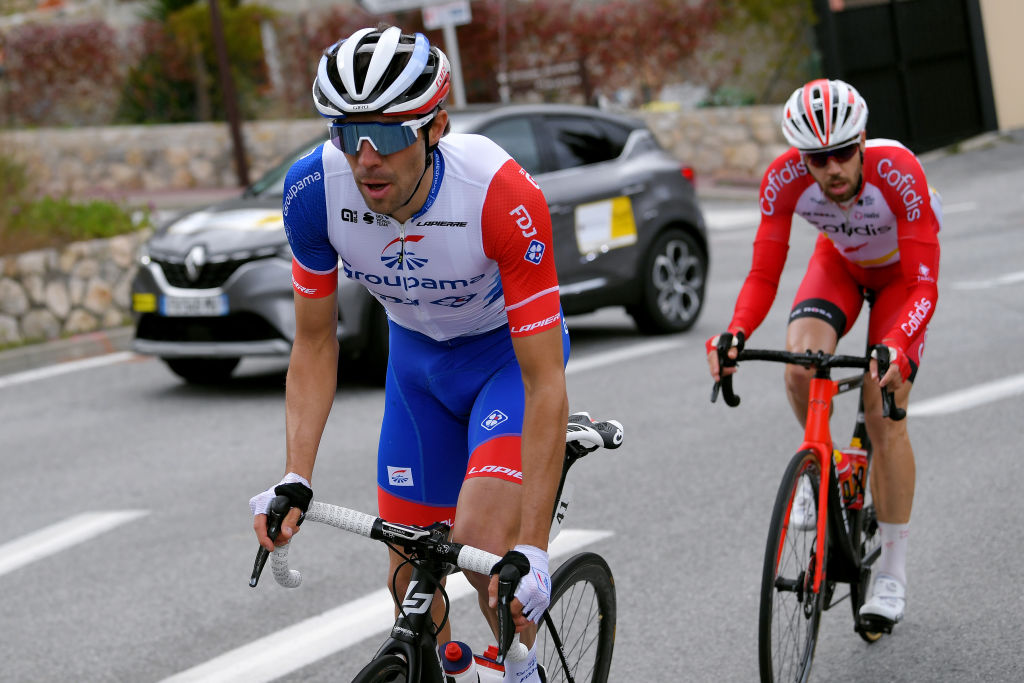
The south of France has done cycling proud
Once the destination of choice for pro riders looking to start their seasons, the south of France has unwittingly regained that status due to cancellations and postponements elsewhere as a result of the coronavirus pandemic. Over the last three weeks, the Midi has not only provided most of the peloton’s best teams with somewhere to race, but has also served up plenty of thrilling action, starting with the GP La Marseillaise and continuing through the Étoile de Bessèges, the Tour de la Provence and the Tour des Alpes Maritimes et du Haut Var.
They’ve provided a reminder of why so many pros used to set up camp in this region. The weather’s been good, there are hotels aplenty, and the roads are always likely to provide the kind of intense racing that riders are looking for at this early point in the season.
These races have been blessed with extremely strong fields, packed with Grand Tour and Classics winners, and there are already signs that many will be back next year to show their support and appreciation to race organisers who have battled in unprecedented circumstances to keep their events afloat. Chapeau to all of them.
Peter Cossins has written about professional cycling since 1993 and is a contributing editor to Procycling. He is the author of The Monuments: The Grit and the Glory of Cycling's Greatest One-Day Races (Bloomsbury, March 2014) and has translated Christophe Bassons' autobiography, A Clean Break (Bloomsbury, July 2014).
